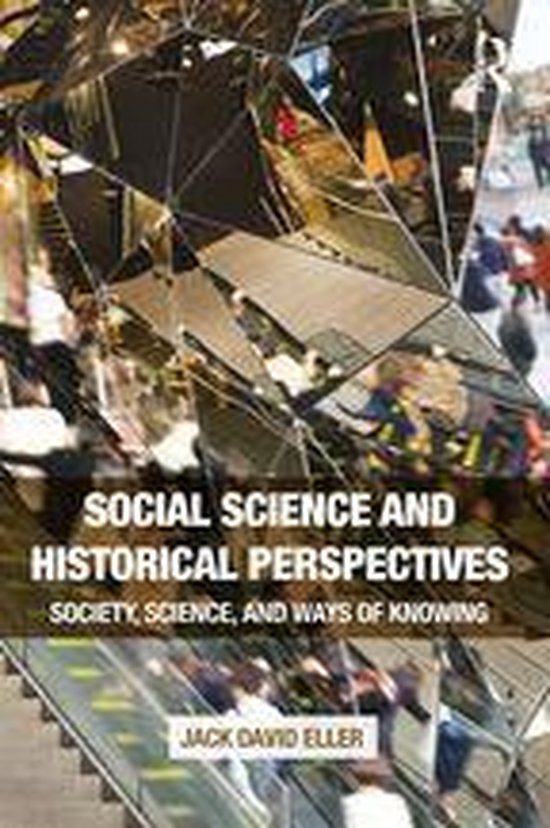Week 1 1 april – 5 april Intro, 1
Week 2: 8 april – 12 april 4 (alleen 103-106), 6, 3, 7, Davis&Marquis, Song, Eberl & Eisele
Week 3: 15 april – 19 april Hansson, Pina e Cunha, Clegg & Mendonca, Stirling,
Bohannon, Bucchi & Trench, Hamid, Ali
Week 4: 22 april – 26 april 9, Chakravartty, Knobloch-Westerwick, Glynn & Huge,
Goldberg, Kuvalanka & dickey
VAKANTIE
Week 5: 6 mei – 10 mei 8 (intro + formative period of modern geography,
contemporary human/cultural geography though and
method 213-216 + 221-224 + 228-241), Alatas, Hira, Fanon (1-7),
Waisboard & Mellado, Berghel, Van der Werfhorst
Week 6: 13 mei – 17 mei Marquez, Komp, Gopalakrishna et al.
Week 7: 20 mei – 24 mei Finefter-Rosenbluh & Levinson, Halffman & Radder, Amaral et
al., Bull et al., Nejati & Nejati
Week 8: dinsdag 28 mei toets
Aan het eind uitprinten en alle begrippen markeren
,Literature
,Introduction
The ‘sociology of knowledge’ is a social organization of knowledge-making (the production of
knowledge often happens in a research laboratory of a scientific discipline) and knowledge-
transmitting. Knowledge isn’t grown on a tree and therefore, needs to be discovered and
constructed by putting facts together to draw conclusions and generalizations. A knowledge
community Is a sort of language of terminology that various disciplines use differently, therefore
different departments often don’t even talk to each other about the same knowledge.
Science is a culturally-specific way of knowing, because the one that contends the science has a
Western way of knowing
The current way of organizing knowledge isn’t the best; we should collaborate more within
departments and with people that have different cultural background, using information-sharing
methods and maybe even photography
Social sciences were invented very recently
1. They haven’t always existed in their present form
2. The sciences therefore won’t always exist in their present form
, 1 What is social science?
Process of conducting/discovering knowledge
1. Creation
2. Perpetuation
3. Transmission
4. Institutionalization
Karl Mannheim: first to suggest a social approach to knowledge (about our society), including the
question: how do the social location of individuals and group shape their knowledge? He found
that taste reflects the society and a person’s location in society (gender, class, age…). He studied
the relation between:
- Knowledge-age → result: shared thought, experience, feeling and action, thus a
stratification of experience
- Knowledge-generation → result: people who occupy the same generation share a
common location in the social and historical process, thus the same experience
Swindler and Arditi were interested in various types of knowledge and the question: how social
organization make orderings of knowledge possible?
Basil Bernstein studied social processes of educational knowledge, suggesting three common
message systems within the school institution
1. Curriculum (aka contents/canon): some people select things that are worth knowing and
appropriate for the level of the knower → choices must be made about which events to
include and exclude and how the emphasize/interpret them
2. Pedagogy (teaching methods): any academic institution must decide how to teach, which
comes with decisions: memorization/critical thinking, textual/visual materials, group work/
individual work
3. Evaluation (testing): can be done by parents, but also by administrators for example
Bernstein identified two dimensions of the organization of knowledge
1. Classification: about the boundaries between subject areas in the curriculum (math is
different from history from art)
2. Frame: referring to teaching practices as the degree of control, order and timing of
activities
Expert knowledge is created by practices and experience through facts or evidence, identified on
the basis of qualifications, training, experience, professional membership and peer recognition. It’s
limited to a specific subject area and it’s source of knowledge is education, depended of schools,
teachers and textbooks. Experts often work in groups and possess power for their information,
coming from scientific discoveries and technological breakthroughs.
Educational and expert knowledge together raise issues of power (knowledge is power), where it is
also shaped by punishment and physical constraint
Foucault: the knowledge/power system in any society is a discursive regime or an episteme
(Greek), where people only know what there is to know or think (no creativity, so huge limits).
Some scientists say that knowledge is less a matter of cognitive or verbal information, but more of
practical skills and learned intuitions (experience) → enskilment = learned by observation, not by
teaching
Habit = acquired, but unconscious embodied knowledge that makes social action possible
Agnotology = the investigation of the causes and effects of ignorance or knowledgelessness (not
having the information, sometime due to secrets, silence or active suppression of knowledge)
Some claims of knowledge contradict, threaten or undermine knowledge, belief or interests: just as
when you tell a tobacco company that smoking is bad





